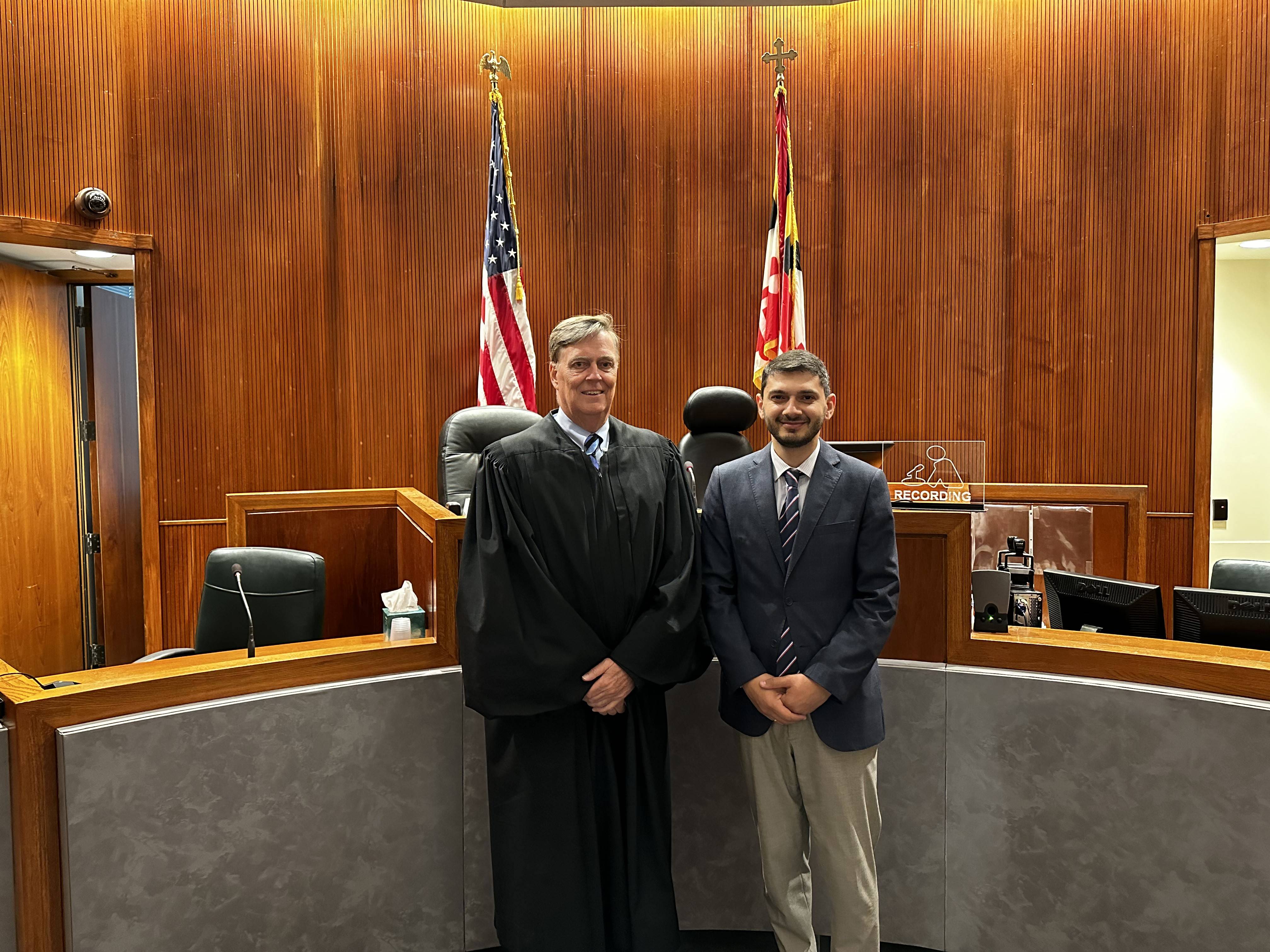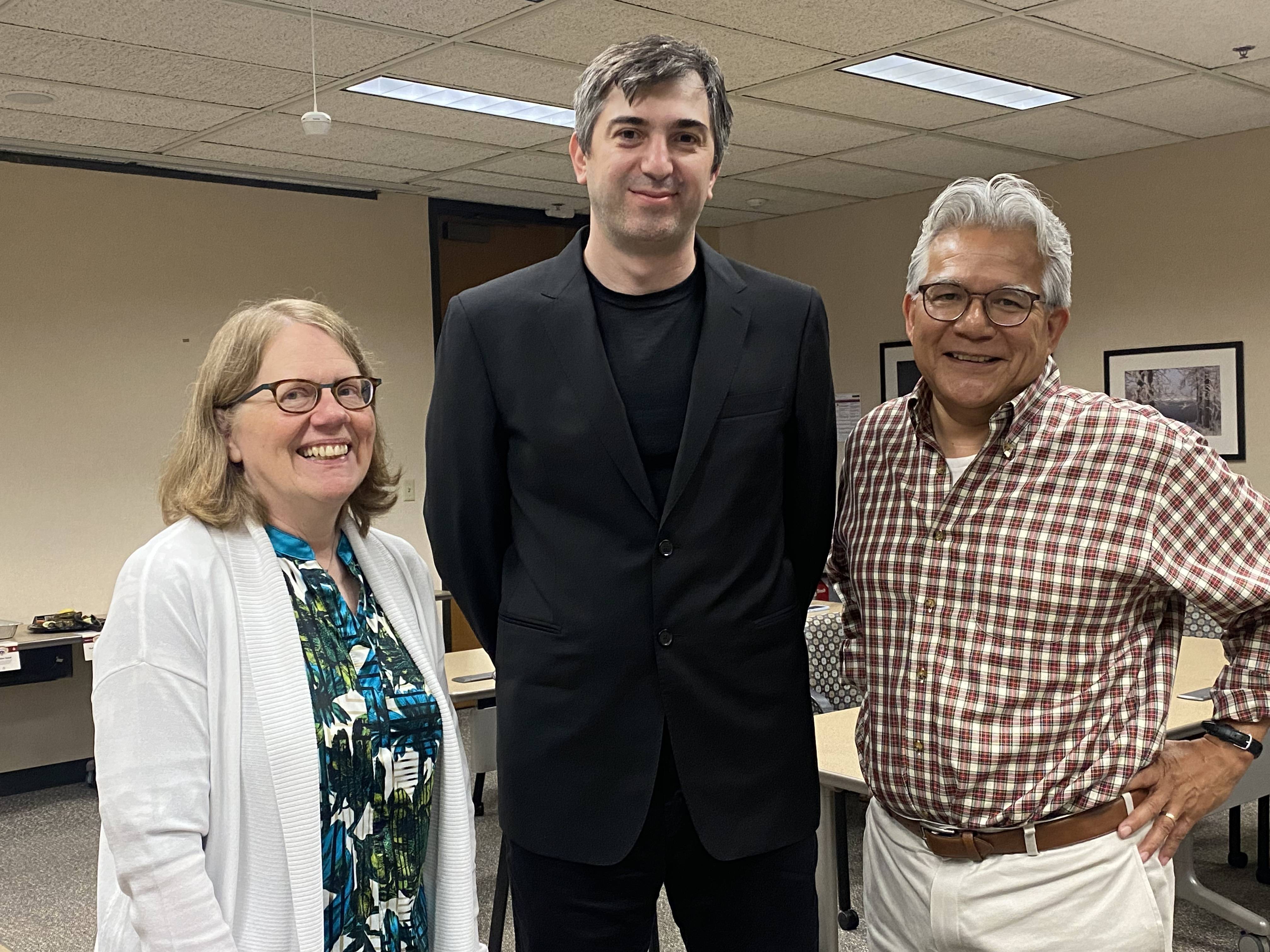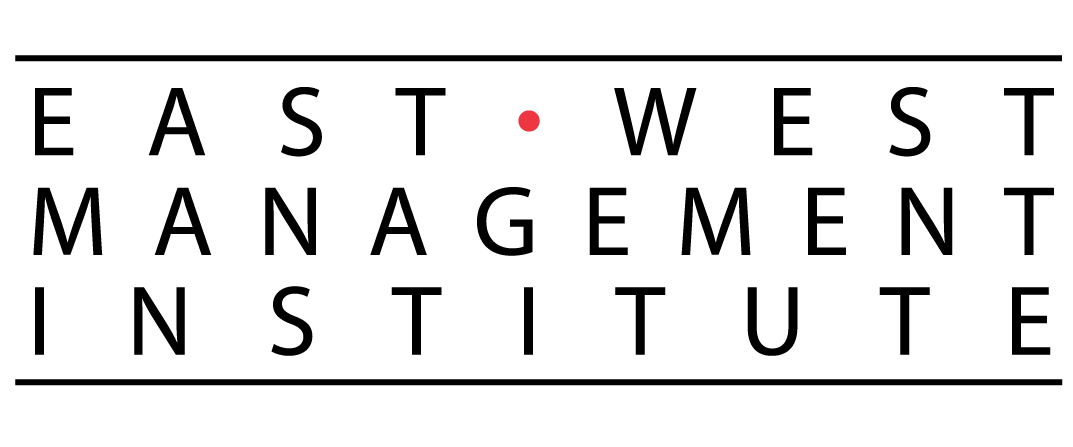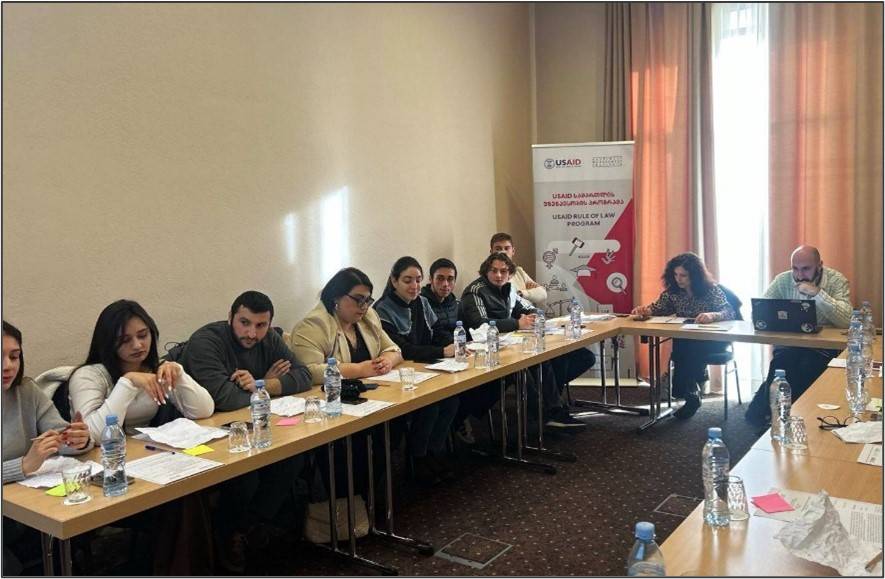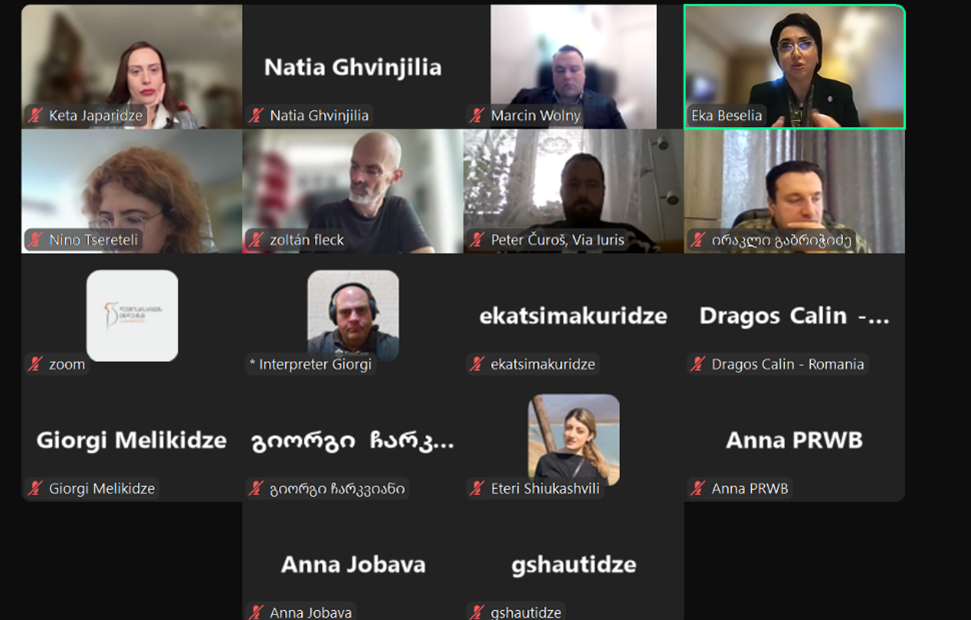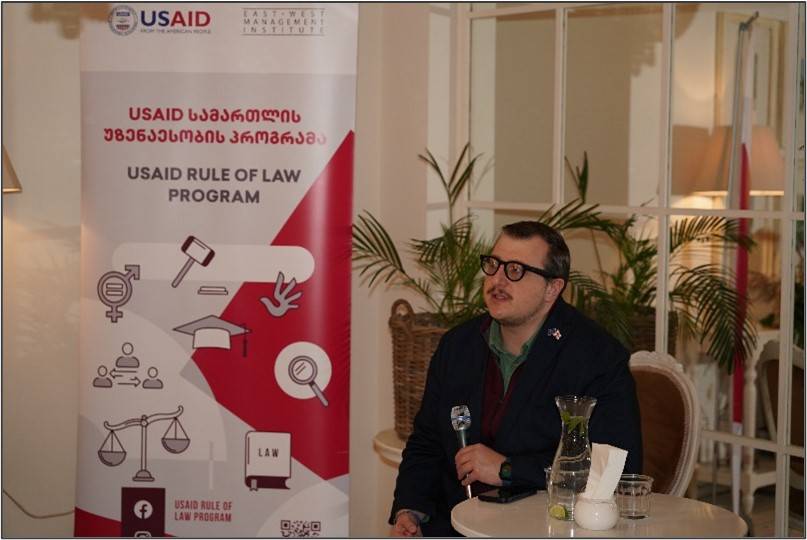Georgian Judges Gain Valuable Insights from U.S. Court Exchanges
The USAID Rule of Law Program is committed to support the Georgian judiciary by facilitating judicial exchanges and providing opportunities for Georgian judges to gain exposure to U.S. best practices. These efforts enhance the professional capacity of individual civil and administrative judges in Georgia, enabling them to work effectively and efficiently in their respective roles.
As part of this initiative, three civil and administrative judges were seconded to different U.S. courts for two weeks, working with their U.S. counterparts and observing court proceedings. The secondments, which focused on areas of each judge’s interest, were facilitated by the East - West Management Institute’s (EWMI) partner under the Program the American Bar Association Rule of Law Initiative and completed in June.
Nino Gergauli, a first instance judge from Gori District Court, was placed with the Lane County Circuit Court in Eugene, Oregon for a secondment that focused on child rights and family law matters. She attended over 30 court sessions, and the cases covered topics such as restraining and protective orders, juvenile matters, jury trials, domestic violence, plea agreements, and child visitation cases.
Judge Gergauli emphasized the kindness of American judges and their staff, who willingly shared information about their activities. She also commended the judges for providing detailed explanations of the factual and legal circumstances of the cases and keeping control of their courtrooms under very difficult circumstances.
“Participants, attendees, and parties involved in the cases adhered to the judge's instructions while expressing emotions that are natural during court proceedings. Any excessive or inappropriate behavior was promptly addressed by the judges. I loved the businesslike, ethical, and courteous conduct of representatives, prosecutors, and lawyers towards each other and the court. Citizens were allowed to bring their babies to the courtroom, and public attendance was highly valued, even in sensitive cases such as sexual assault. Measures were in place to ensure the confidentiality of conversations and communications within the courtroom.” - said Judge Gergauli.
Judge Gergauli found several aspects of the American judicial system worth considering in Georgia. She emphasized the efficiency of resolving cases through streamlined procedures, with most cases being resolved within a single court session. Judge Gergauli also highlighted the minimization of children's involvement in court proceedings unless absolutely necessary. She noted the court’s use of a Custody Evaluator, who prepares comprehensive reports that provide the judge with critical information regarding the case.
During his secondment, Besarion Tabaghua, a first instance judge from Tbilisi City Court, had the opportunity to observe five to six court sessions daily at the Hennepin County Circuit Court in Minneapolis, Minnesota. He found the experience to be extremely valuable, stating, "This exposure provided me with valuable experience and knowledge that I will successfully apply in my professional and academic activities."
Judge Tabaghua noted that even though the American legal system differs significantly from the Georgian system, particularly in the realm of civil law, the Georgian system can still learn beneficial practices from the U.S. He mentioned the benefits of the U.S. practice of consolidating juvenile institutions into a single building and the significance of giving testimony under oath by the parties involved, which could increase accountability.
“I also had the opportunity to visit Minnesota Law School, where I attended a scientific paper review conducted by the university's academic staff. I met with law professors and library staff to further explore legal topics. I also participated in the swearing-in ceremony of administrative court judges, which left me with positive emotions and a sense of inclusion.” – said Judge Tabaghua.
Badri Niparishvili, a first instance judge from the Regional Court of Tetritskaro, participated in a secondment at Montgomery County Circuit Court in Rockville, Maryland. He attended over 20 sessions, which primarily revolved around juvenile criminal cases, child custody determinations, custody issues, and the approval of protective orders.
Judge Niparishvili highlighted the simple and effective procedures used to resolve cases in the American judicial system. He noted that most sessions were concluded in one hearing, ensuring efficiency. He observed a minimal involvement of children in court proceedings, with the appointment of lawyers and psychologists reserved for exceptional cases, which contributed to the expedited resolution of cases.
Judge Niparishvili noted the use of parallel justice tools aimed at rehabilitation and resocialization when dealing with juvenile criminal cases. He also highlighted the importance of warning parties about the consequences of providing false information during family disputes.
Regarding the attitude of the public and judges during court sessions, Judge Niparishvili commended the respectful treatment of parties by the judges and the mutual respect exhibited by those present in the courtroom. Public attendance at court hearings was highly valued, and attendees were free to enter and leave the session hall at any stage of the court hearing. Measures, such as white noise functionality, were used to maintain the confidentiality of conversations within the courtroom. Judge Niparishvili appreciated the direct and open nature of American judges, which fostered easy and interesting communication.
The observations and lessons learned during these visits will enhance the Georgian judicial system and improve efficiency in resolving cases. The exchange of best practices and the establishment of relationships between judges from U.S. and Georgia also fosters a collaborative approach to strengthening the rule of law.
